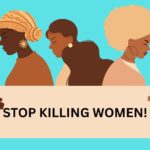
The criticality of Menstrual Hygiene Management
Menstrual Hygiene Day is a global advocacy day that takes place on May 28th every year bringing together the voices and actions of non-profits, government agencies, individuals, the private sector and the media to promote good menstrual health and hygiene (MHH) for all women and girls. This year’s theme of “Making menstruation a normal fact of life by 2030”, emphasizes on building a world by 2030 where no girl or women will be held back or disenfranchised as a result of menstruation.
Menstruation is a natural part of a girl’s life. Yet for many around the world, experiencing their first menstruation can signal the start of a reduction in the choices they are able to make for themselves. In some cultures, parents and communities view a girl’s first period as a sign that she is a woman, ready for marriage and motherhood.
For some girls, menstruation may be an inconvenience they don’t give much thought to as they have access to the necessary menstrual products and social support they need. But for millions of others, this most natural of reproductive cycle functions can equate to stigma as some are barred from sharing meals or banished to menstruation huts while others loss their dignity due to lack of personal hygiene products and supplies.
According to the World Bank, the challenge menstruating girls and women face is often less tangible than simply the availability of personal hygiene products and supplies, and is rooted in social norms and beliefs. In many cultures, menstruating women are considered impure and are systematically excluded from participating in every-day activities, such as education, employment, and cultural and religious practices.
The taboos and stigmas attached to menstruation lead to an overall culture of silence around the topic, resulting in limited information on menstruation and menstrual hygiene. The resulting lack of or limited information about menstruation leads to unhygienic and unhealthy menstrual practices such as use of unhygienic material for the absorption of blood and altered bathing practices. Moreover, this can create misconceptions and negative attitudes, which motivate shaming, bullying and even gender based violence.
Millions of women and girls around the world are stigmatized, excluded and discriminated against simply because they menstruate. This limits the ability of women and girls to fully and equally participate in society, undermining their overall social status and self-esteem.
It’s not acceptable that because of a natural bodily function, women and girls continue to be prevented from getting education as they lack the necessary menstrual products while others fear to be embarrassed as a result of soiling their clothes by the menstrual flow. People experiencing period poverty are therefore unable to purchase the menstrual products they need, and in many cases they cannot go to school or work or otherwise participate fully in daily life.
Around the world, thousands of women, girls and people who menstruate live without access to the sanitary products they need. Studies show that school girls in Kenya engage in transactional sex to pay for menstrual products; particularly for the younger, uneducated, economically dependent girls.
Menstrual Hygiene Management
Menstrual Hygiene Management (MHM) on the other hand, can be particularly challenging for females in developing countries where clean water and toilet facilities are often inadequate. For school girls, lack of access to sanitation products and facilities, restrooms that are not MHM friendly as well as inadequate health education about menstruation and poverty hinders access to equitable education, undermining their well-being and preventing their empowerment.
The importance of menstrual hygiene as seen with the human rights lens with particular focus on access to water and sanitation highlights many cross-cutting issues that are indispensable to sustaining healthy livelihood and maintaining the dignity of women and girls. These include; gender equality, community education and economic empowerment. When women and girls lack adequate access to water and sanitation and at the same time suffer from poverty, they are more likely to be vulnerable to forms of violence and abuse and additional health risks such as reproductive tract infections.
Millions of women and girls worldwide experience period poverty, described as limited access to period products, menstrual education, or adequate water sanitation and hygiene facilities. Cultural norms, stigma, and taboos surrounding menstruation create further barriers to achieving menstrual health. Although people’s experiences of period poverty are varied and unique, the social determinants of health and structural determinants of gender inequality act as key drivers of period poverty across the globe.
Menstrual Hygiene and Health (MHH) is important for the fulfilment of girls’ and women’s rights, a key objective of the Sustainable Development Goals. Women and girls’ access to MHH is a component of gender-responsive WASH services. SDG 6.2 acknowledges the right to menstrual health and hygiene, with the explicit aim to; achieve access to adequate and equitable sanitation and hygiene for all, paying special attention to the needs of women and girls and those in vulnerable situations by 2030”. Without considering needs for safe and dignified menstruation, the world cannot achieve the vision for sanitation and hygiene under Goal 6.
Women and girls’ access to MHH is also central to achieving other Sustainable Development Goals. The lack of basic knowledge about puberty and menstruation may contribute to early and unwanted pregnancy; the stress and shame associated with menstruation can negatively affect mental health; and unhygienic sanitation products may make girls susceptible to reproductive tract infections; all affecting SDG 3 on Good health and Well- being.
Achieving good menstrual health is not just a matter of ensuring access to menstrual products but also relies on individuals having the resources they need to participate fully in all spheres of life including their education, employment, health and social life during their menstrual cycle. These resources might illustratively include information, supplies, sanitation facilities, supportive environments (including sensitized teachers and work supervisors), and accessible health-care workers trained in menstrual health disorders.
With clear coordination between various ministries especially the ministries of health and education, advancing the Menstrual Hygiene and Health agenda be swift. To be able to scale up our collective action to end period poverty and stigma by 2030, non-profits, government agencies, individuals, the private sector and the media need to step up efforts and significantly promote and invest in good menstrual health and hygiene now!



